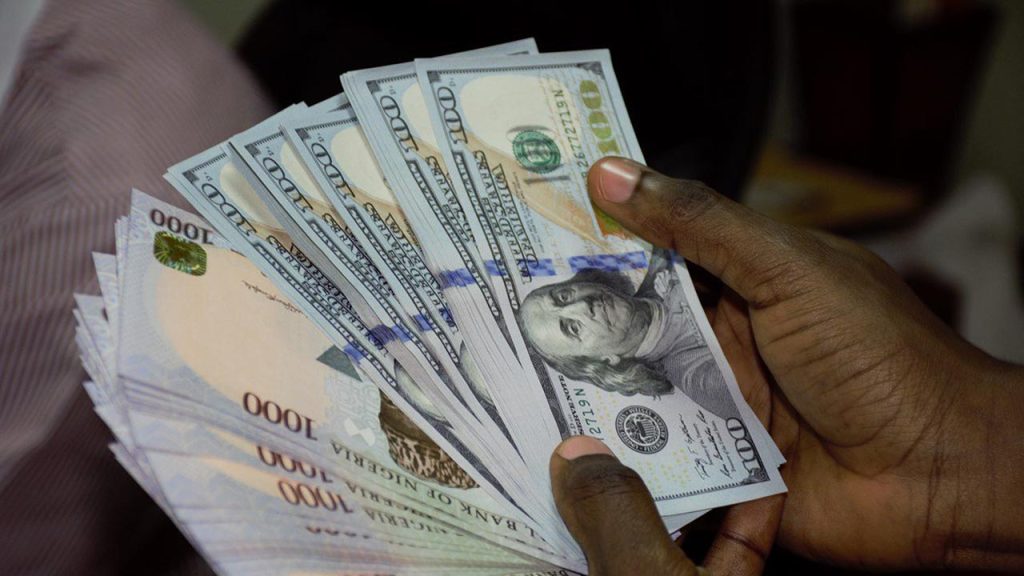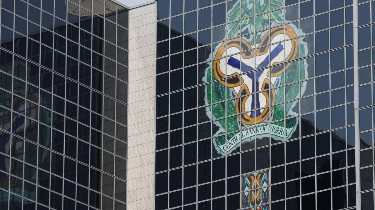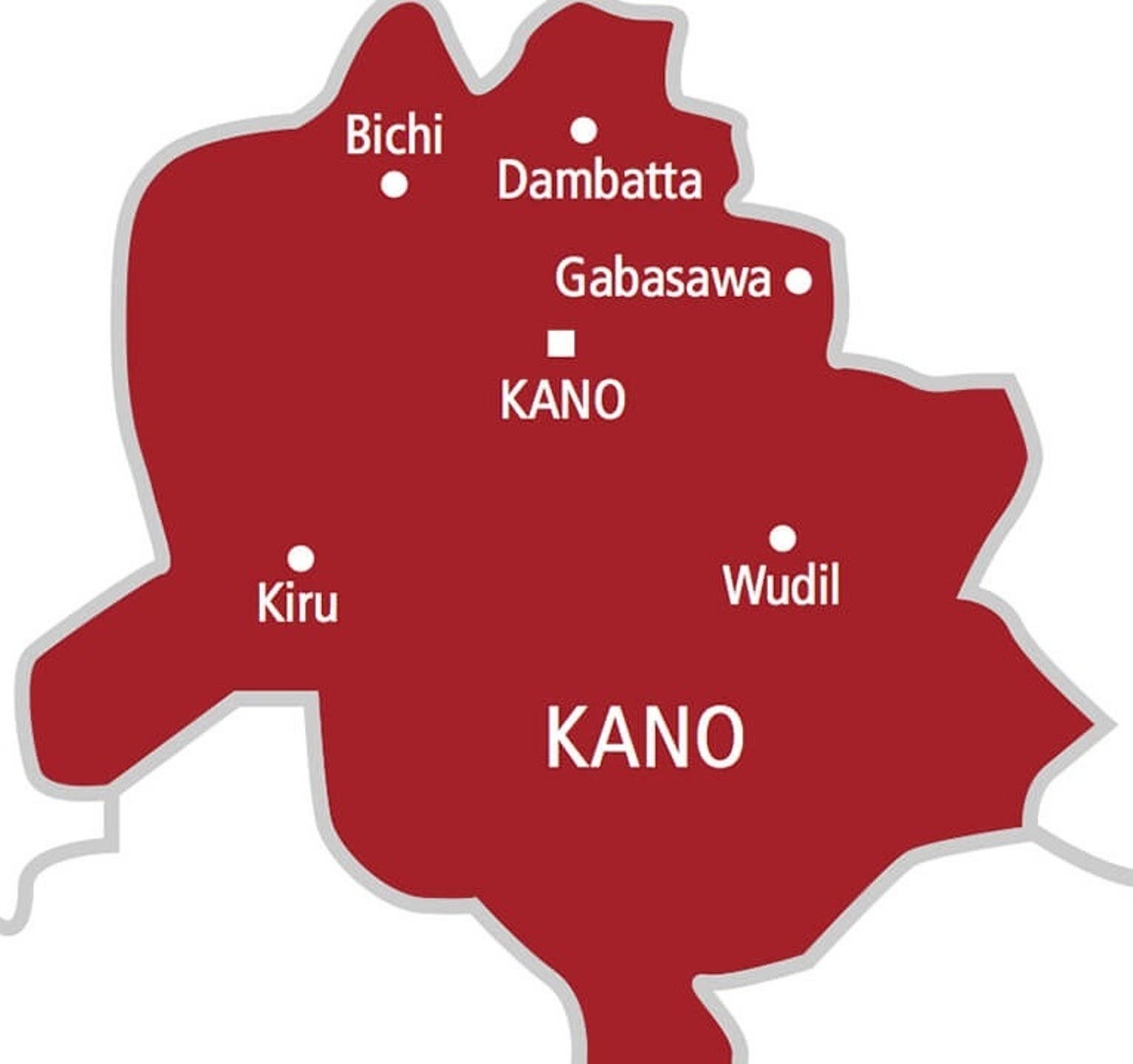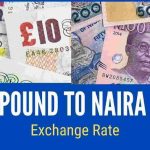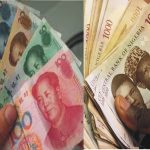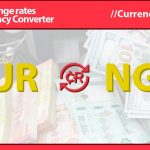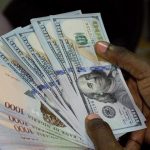Dollar (USD) To Naira Black Market Rate Today 5th June 2023
Right here the currency dealers in Abuja Zone 4 market, Nigeria said a dollar was bought at the rate of 750₦ and sold at the rate of 760₦ today.
Similarly, the second most traded currency known as Euro/Naira traded at the rate of 805 buy then sell respectively in the black market at the rate of 790.
Today Dollar To Naira Black Market Rate News
| Dollar (USD) to Naira (NGN) | Black Market Exchange Rate Today |
| Rate Buying | ₦750 |
| Rate Selling | ₦747 |
Dollar to Naira Rate for Past 7 Days
| Date, Day, and Year | Buying | Selling |
| June 4th, 2023 | 750 | 747 |
| June 3rd, 2023 | 747 | 750 |
| June 2nd, 2023 | 745 | 742 |
| June 1st, 2023 | 770 | 765 |
| May 31, 2023 | 772 | 768 |
| May 30, 2023 | 778 | 770 |
| May 29, 2023 | 764 | 760 |
Factors Influencing Foreign Exchange Rates
Introduction
Foreign exchange rates play a vital role in the global economy, impacting international trade, investments, and financial transactions. Understanding the factors that influence foreign exchange rates is crucial for businesses, investors, and individuals involved in cross-border activities. In this article news, we will explore the key determinants of foreign exchange rates and how they shape currency values.
Supply and Demand
The interplay between supply and demand is a fundamental factor in determining foreign exchange rates. Like any market, changes in the supply and demand for currencies can significantly impact their values. When the demand for a particular currency exceeds its supply, its value tends to rise, and vice versa.
Economic Factors
Economic indicators play a vital role in shaping foreign exchange rates. Factors such as Gross Domestic Product (GDP), employment rates, and consumer confidence can influence currency values. A strong economy with robust growth and low unemployment rates generally leads to a stronger currency, while economic weaknesses can result in currency depreciation.
Interest Rates
Interest rates play a crucial role in foreign exchange rate determination. Central banks use interest rates as a tool to control inflation and stimulate economic growth. Higher interest rates tend to attract foreign investors seeking higher returns, increasing the demand for the currency and driving its value up.
Inflation
Inflation differentials between countries impact exchange rates. When a country experiences high inflation, the purchasing power of its currency decreases, resulting in currency depreciation. Central banks implement monetary policies to manage inflation, and their actions can affect the value of the currency in the foreign exchange market.
Political Stability
Political stability is a crucial factor in determining currency values. Currencies of politically stable countries are generally more attractive to investors, as they provide a secure environment for economic activities. Political instability, on the other hand, can lead to currency depreciation due to increased risks and uncertainties.
Government Intervention
Governments and central banks sometimes intervene in currency markets to influence exchange rates. They can use various tools, such as buying or selling currencies or adjusting interest rates, to manage their currency’s value. Government intervention can be aimed at maintaining competitiveness in global trade or managing economic imbalances.
Market Sentiment
Market sentiment, driven by investor confidence and risk appetite, can significantly impact exchange rates. Positive market sentiment encourages investments and strengthens the demand for a currency, leading to appreciation. Negative sentiment, on the other hand, can drive investors away and result in currency depreciation.
Speculation and Investor Behavior
Speculation and investor behavior play a role in shaping foreign exchange rates. Currency traders and investors who anticipate currency movements based on economic data, news events, or technical analysis can impact exchange rates through their trading activities. The behavior and sentiment of these market participants can lead to short-term fluctuations in currency values.
Trade Balance
The trade balance between countries influences exchange rates. When a country’s exports exceed its imports, it generally experiences a trade surplus, which can lead to currency appreciation. Conversely, a trade deficit (imports exceeding exports) can put downward pressure on the currency’s value.
Capital Flows
Capital flows, including foreign direct investment and portfolio investment, have an impact on exchange rates. Countries that attract significant capital inflows tend to experience currency appreciation, as increased investment demand strengthens the currency. Conversely, capital outflows can result in currency depreciation.
Natural Disasters and Geopolitical Events
Natural disasters and geopolitical events can have an immediate impact on exchange rates. These events can disrupt economies, affect investor sentiment, and introduce uncertainties that lead to significant currency fluctuations. For example, a natural disaster can negatively affect a country’s economy and weaken its currency.
Global Economic Trends
Global economic trends play a crucial role in shaping foreign exchange rates. The performance of major economies, economic integration, and global economic conditions can impact currency values. Strong economic growth in major economies often leads to currency appreciation, while economic downturns can result in currency devaluation.
Interconnectedness of Currency Markets
Currency markets are interconnected, and the value of one currency can be influenced by developments in other currencies. The relationships between major and minor currency pairs, as well as cross-currency correlations, can impact exchange rates. Changes in one currency can have ripple effects on others.
Conclusion
In conclusion, foreign exchange rates are influenced by a variety of factors, including supply and demand dynamics, economic indicators, interest rates, inflation, political stability, government intervention, market sentiment, speculation, trade balance, capital flows, natural disasters, geopolitical events, global economic trends, and the interconnectedness of currency markets. Understanding these factors and their impact on exchange rates is crucial for businesses, investors, and individuals operating in the global marketplace.
FAQs
- How often do foreign exchange rates change? Foreign exchange rates can change frequently, even within minutes or seconds, as they are influenced by various factors and market conditions.
- Can governments manipulate exchange rates? Governments can intervene in currency markets to influence exchange rates, but their ability to manipulate rates in the long term is limited due to market forces.
- How do interest rates affect exchange rates? Higher interest rates tend to attract foreign investors seeking higher returns, leading to an increased demand for the currency and strengthening its value.
- Are natural disasters significant factors in currency fluctuations? Natural disasters can have a significant impact on currency values, especially if they disrupt an economy or affect key industries.
- How does market sentiment influence exchange rates? Positive market sentiment encourages investments and strengthens the demand for a currency, while negative sentiment can drive investors away and result in currency depreciation.
Read and Share The Latest Dollar To Naira Update Here
Do you find Six9ja useful? Click here to give us five stars rating!
